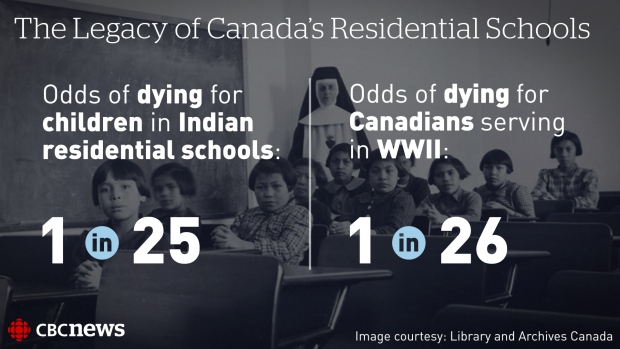U1L3 Reconciling Nationalist Loyalties
| Site: | MoodleHUB.ca 🍁 |
| Course: | Social 20-2 RVS |
| Book: | U1L3 Reconciling Nationalist Loyalties |
| Printed by: | Guest user |
| Date: | Saturday, 27 December 2025, 1:16 PM |
Description
U1L3
Introduction
Reconciling Nationalist Loyalties
Key Issue
To what extent should people reconcile their contending nationalist loyalties?
France needed a hero, but did they get one? The Enlightenment and French Revolution led to the eventual reign of Napoleon, followed by his downfall. We study this to learn about the evolution of modern nationalist ideas. The enlightenment brought up the ideas, the French Revolution put them into action and nationalist groups wanted to rule themselves in order to create a better society for the people within their nation.
Now we will look at loyalty and the history of other nationalist movements and how they have developed over time.
Loyalty may be the firm belief in or the show of support for an idea, a person, a group, or a nation. Individuals may hold many loyalties. You may even hold loyalties that do not exist together in harmony. These loyalties may contend, or compete, with each other. For some individuals, it may enrich their lives to hold diverse, even contending loyalties. Contending loyalties for some individuals may create conflict and demand reconciliation to end the competition or issue. In the case of Canada, contending loyalties may require attention in order to secure unity and peace in the nation.
In this section you will explore the diverse loyalties that individuals hold in response to this question: What are your loyalties in relation to nation, nationalism, and identity, and do nationalist loyalties shape your choices? Each of the following lesson inquiries will develop understandings to help you respond to the section question:
- What are your loyalties?
- Do you have to reconcile your diverse/contending loyalties?
|
|
Contending Loyalties
|
Lesson - Nationalist Loyalties
![]() RESOURCES
RESOURCES
Read and refer to Chapter Three
as your resource for completing this lesson's assignment.
Chapter Study Notes
Who was Napoleon Bonaparte?
American Nationalism
Quebec Nationalism
Metis Nationalism
![]() LESSON
LESSON
One synonym for loyalty is "commitment" - the act of staying true to an idea, a cause, a nation, a person, or even yourself. People sometimes demonstrate their loyalty publicly. British Prime Minister Winston Churchill did this during World War II, when he vowed in a famous speech that Britain would "never surrender" to Hitler and fascism. But loyalty does not need to be displayed publicly. It can be low-key and long term, as in the quiet commitment of two people who are united in a lifelong relationship.
Non Nationalist Loyalties are loyalties that are not embedded in the idea of nation. (ex - Loyalties to family, friends, school, etc)
Listen to the following explanation for Reconciling Contending Loyalties
|
Loyalty means to be firmly committed or faithful to someone or something |
Patriotism is the love of one's country or nation
|
|
A Nationalist Loyalty means to be faithful to your country or nation by going to a parade, or displaying a flag, or keeping in touch with your community
|
Contending Loyalties mean against or competing with one another
|
Names can be useful tools for affirming nationalist loyalties. The Inuit of South Baffin Island, for example, have started the South Baffin Place Names Project to record traditional Inuktitut place names. Inuktitut is the language of the Inuit. Inuktitut names were often ignored by Europeans, who gave their own names to places in the North. Watch the following video, Kiviaq versus Canada.
|
Watch the following documentary. Kiviaq vs Canada: As you watch, consider the following questions:
|
TERMS to review
From your textbook reading, the following terms and concepts are worth revisiting:
- What are some synonyms for loyalty?
Some synonyms for loyalty are allegiance, faithfulness, devotion, fidelity, steadfastness and attachment. - Why do contending loyalties make choice difficult at times?
Sometimes you are torn because you feel loyalty to more than one person, group, nation, etc. Also, showing loyalty can sometimes semm to conflict with your own interests. - What does cultural pluralism mean, and why does it attract immigrants to Canada?
Cultural pluralism means encouraging groups to keep and even promote their unique cultural identity. This attracts immigrants because these groups feel welcome, and they believe that they will not be required to give up their original cultural identity completely. - What is meant by reasonable accommodation?
This means requiring Canadian public institutions to adapt to the religious and cultural practices of minorities as long as these practices do not violate other rights and freedoms. This has caused a lot of debate over the past few years, in particular, as immigrant groups demand more accommodation of their customs and beliefs. - What does reconciliation mean?
In terms of contending nationalist loyalties, an act of reconciliation can mean coming to terms with the past or mending a broken relationship, in order to try to help groups resolve their differences and bring them together again. - What does the Royal Commission on Aboriginal Peoples want the government to do?
The Commission wants the government to change its approach to Aboriginal land claims.
Lesson - Conflicting Nationalist Loyalties
![]() LESSON
LESSON
Students will explore how contending nationalist loyalties can create conflict by examining how Newfoundland mourns on Canada Day, the ongoing debate over Quebec nationalism, and Aboriginal reconciliation.
But nationalist loyalties are not always compatible. Their goals sometimes conflict. If you feel a strong loyalty to Canada at the same time as you feel a strong loyalty to Quebec - and your loyalty to Quebec lead you to believe that the province should become independent - you would have a hard time making choices that would satisfy both these loyalties.
Israel
|
Reconciliation can mean coming to terms with the past or mending a broken relationship. When two friends have a serious disagreement, an act of reconciliation can help resolve their differences and bring them together again. Similarly, when peoples or nations disagree, or when their nationalist loyalties lead them to pursue contending goals, an attitude of reconciliation can bring them together and enable them to coexist in peace. But when two contending nations cannot achieve reconciliation, the outcome can be serious. The inability to resolve differences may lead to damaging political struggles and even outright war.
For decades, Canadian governments tried to force First Nations, Inuit, and Metis to abandon their culture and traditions and to assimilate into mainstream society. Over the past decades, this policy has changed, as governments have recognized Aboriginal and treaty rights. These rights are now enshrined in the Charter of Rights and Freedoms, yet many First Nations, Inuit, and Metis continue to face an uphill struggle in their quest to control their own destiny. |
 |
|
|
The Royal Commission on Aboriginal Peoples
|
Watch the statement of apology to former students of Indian Residential Schools
Assignment
Assignment Preparation
Now that we know the historical development of nationalism, we need to ask does nationalism still have relevance today? We will begin to look at the history of some important nationalist movements in order to assess their causes and impact on society. Begin by clicking on the three types of nationalism below and reading through the material. Be sure to highlight the most important information in each one.
Then, complete the following by entering your answers directly into the following document (some additional research may be necessary) - RETRIEVAL CHART

Label your completed chart - SS20U1L3.surname and
submit using the Assignment Folder for U1L3 Foundations of Nationalism.
Complete the practice exam that follows.
![]() Using all the text and resource links within this lesson write the Unit 1 Lesson 3 Quiz open book quiz. (answers are located in lessons 2 and 3)
Using all the text and resource links within this lesson write the Unit 1 Lesson 3 Quiz open book quiz. (answers are located in lessons 2 and 3)
Evaluation and Conclusion
Evaluation -
Knowledge and Understanding (understanding of content) - /20
Application (making connections) - /20
Total - /40
Conclusion
We are now getting a clear picture of how nationalism developed, and how it spread to other dissatisfied or alienated groups in society. We will look at other nationalist groups to determine their goals and actions historically and currently in future lessons.





